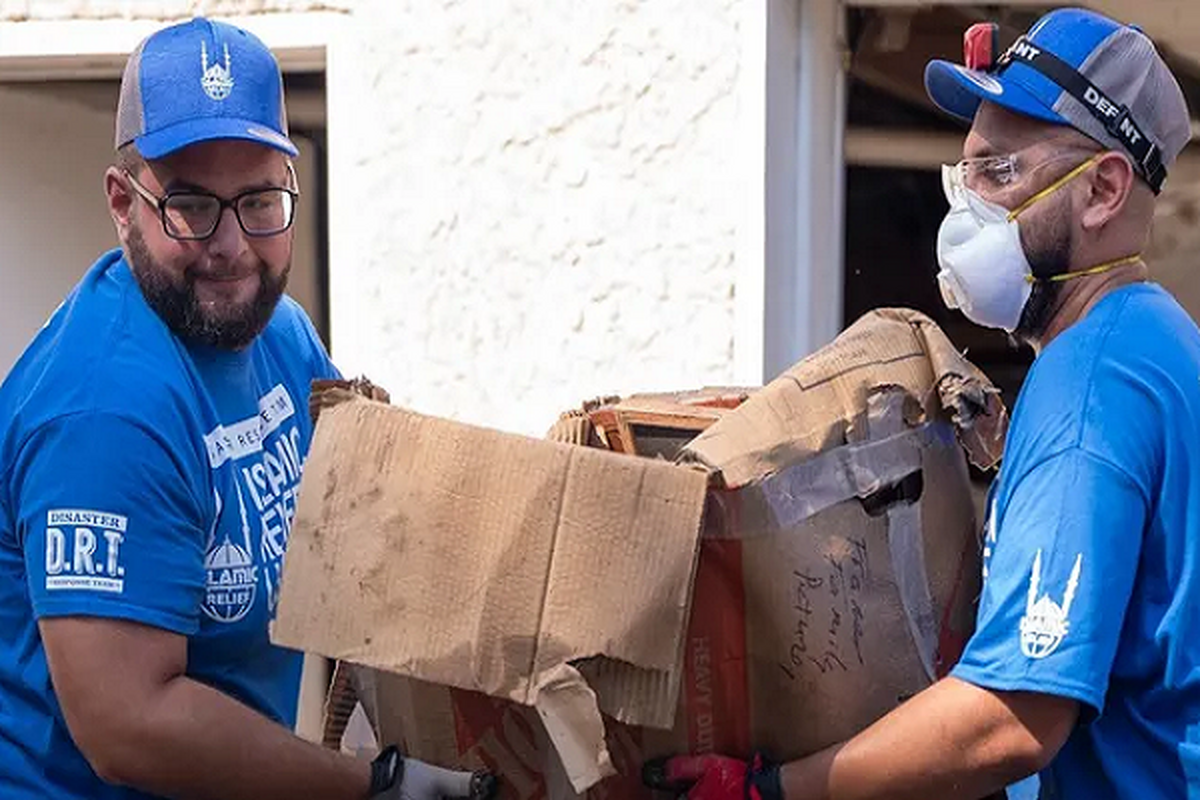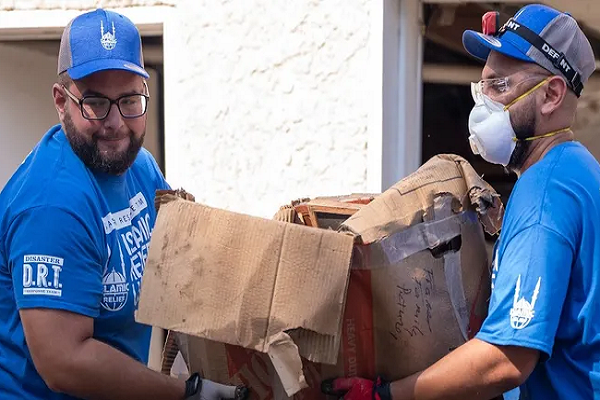Islamic Relief USA Helping with Relief Efforts after Hurricane Helene


The Islamic Relief USA is one of the largest faith-based Muslim nonprofits in the world.
Staff and volunteers with the Islamic Relief visited Georgia this month in the wake of the hurricane to assess damage to homes in hopes that the information can be used to better coordinate resources for affected residents.
At the request of the nonprofit American Red Cross, Islamic Relief traveled to Augusta and other communities in Georgia to support relief operations throughout the state.
The Islamic Relief team had first deployed to western North Carolina, which had seen record-breaking flooding that led to at least 95 confirmed deaths and washed away entire neighborhoods and roadways. Workers with Islamic Relief were helping local teams with the "muck and gut" process for damaged homes, which involves removing contaminated belongings and construction materials so that the homes can be prepared for mold treatment.
To Hani Hamwi, Islamic Relief USA's Disaster Management Team manager, responding to calls for help in the Southeast is part of the nonprofit's mission to provide relief and to restore dignity, regardless of race, gender or religion.
"Work here after a hurricane is just as important as any other kind of human suffering," Hamwi said. "When I look at human suffering, I don’t see a political issue whatsoever, I don’t see a racial issue whatsoever. Human suffering is human suffering regardless of where it is, regardless of who’s affected."
Hamwi said the impact of the hurricane in both North Carolina and Georgia was devastating, although the Islamic Relief team observed some differences in how that destruction manifested. Devastation in Georgia was most clearly illustrated by the sheer number of downed trees, while homeowners in North Carolina reported small streams in their backyards had turned into raging rivers.
"In North Carolina, we saw more flash-flooding incidents, whereas in Georgia it seemed like there was the anticipation of rainfall and downed trees, but it was more severe than what was anticipated," Hamwi said. "But in North Carolina, it was more flash-flooding types of incidents and infrastructure damage."
Staff with the Red Cross in Georgia said the specific type of assistance Islamic Relief provided with damage assessments was much-needed. Many organizations fulfill different services in partnership with the Red Cross, such as food and financial resources, and the nonprofit says it couldn't carry out its mission without the help.
“Every family’s need is very different, just like every storm is very different," said Katie Zwerk, regional communications director for the American Red Cross of Georgia. "Each family’s circumstance is very unique, and so what recovery looks like for one family is going to be different for another. Knowing what damage was done and to what home helps us compile information about the resources people are going to need so they can be in a better space to recover in the months ahead."
But it could take more than months, Hamwi said.
Read More:
He recalled when Islamic Relief first began supporting communities in North Carolina after the state was hit hard by Hurricane Matthew in 2016, and eight years later, many homeowners are still awaiting a rebuild.
"Some people may not know that the help exists and they come very late, and the home has been kind of abandoned for a little while, and for some people, they just need to go through the process of applying to FEMA," Hamwi said. "They may get denied, they may get partial help, and they may get the support they need, but all of this takes time."
But the good news, he also said, is that numerous partners — such as the Red Cross, Islamic Relief, and other members of the National Voluntary Organizations Active in Disaster (VOAD) association — are available to help disaster victims get some of the basic necessities that they may lack.
Having worked with Islamic Relief for 11 years and seen disaster areas firsthand, Hamwi is concerned about the likelihood of homelessness increasing drastically in cities throughout North Carolina and Georgia in the near future due to the hurricane. But that's also why different groups and communities need to come together and do their best to support each other, he said, and coordination under VOAD is one of the ways that is being done.
Read More:
"Their role is just to bring all of the resources together and the organizations together to identify where the heaviest needs are and where organizations can send their resources, whatever it is they offer," Hamwi said. "Whether it’s a flood bucket that they can help with; or water, clothing, or rebuilding help; or muck-and-gut services or financial services, Georgia State VOAD is definitely playing a key role here in bringing all of these voluntary agencies together."
Source: augustachronicle.com



